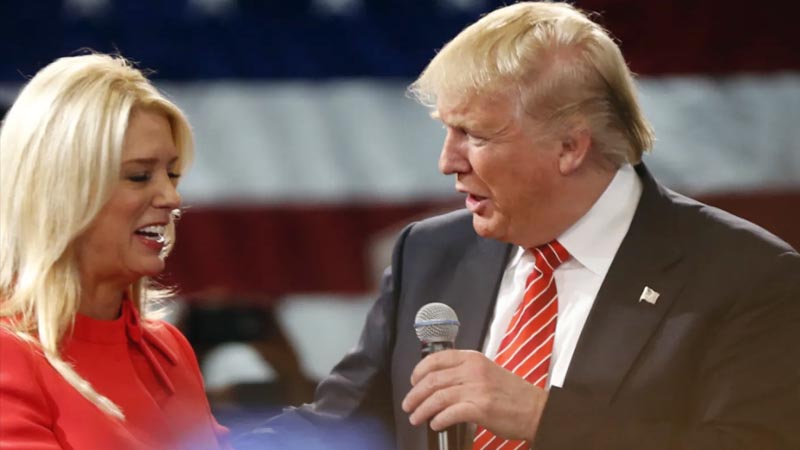Charlie Kirk: The New ‘Kingmaker’ of the MAGA Movement with Power to Shape GOP’s Future

PHOTOGRAPHER: YURI GRIPAS/GETTY IMAGES
Charlie Kirk has emerged as one of the most influential figures in the MAGA movement, second only to former President Donald Trump, and may have the potential to become a “kingmaker” in conservative politics, according to Ali Breland’s analysis for The Atlantic.
Kirk, who heads the far-right youth organization Turning Point USA, has increasingly solidified his role within the GOP, especially through his involvement in Trump’s campaign this year. Turning Point USA has been handling significant parts of Trump’s get-out-the-vote operations, mobilizing young voters to strengthen Trump’s base.
Breland observed Kirk up close during an event at the University of Montana, where he witnessed Kirk rallying young Republicans to oppose Democratic Senator Jon Tester. “He hosts one of the most popular news podcasts in the country, and his YouTube channel is a clout machine,” Breland noted. “But I came away realizing that Kirk is less of an influencer than an operator.”
Breland described a meticulously organized scene: as Kirk spoke, volunteers moved through the crowd, asking attendees if they were registered to vote. Kirk later joined GOP Senate candidate Tim Sheehy at a rally, proudly announcing that Turning Point had registered 100 new voters that day.
“Kirk’s apparatus has gone from a conservative youth outreach organization to an all-encompassing right-wing empire,” Breland explained. “It has allowed Kirk to wedge himself into a powerful role: He is the gatekeeper of a bridge between mainstream conservatism and its extreme fringes.”

Kirk’s growing influence within the GOP is visible through his relationships with influential conservative faith groups, a burgeoning media presence, and high-profile events with figures like Trump and other top Republicans. This network has positioned Kirk as more than just a supporter; he’s now leveraging his influence to push conservatism closer to his own vision. “Kirk has power, and he knows it,” Breland emphasized.
However, Kirk’s rise has not come without controversy. His role as a bridge between traditional conservatism and its more extreme fringes has drawn criticism from some analysts, who argue that his influence could ultimately harm the GOP’s appeal to moderate voters. For instance, Kirk has facilitated events that brought Trump and figures like Vice President J.D. Vance closer to fringe groups, a move some believe could alienate centrist supporters.
Despite the election outcome, Breland suggested, Kirk and the movement he’s built are here to stay. “He is in charge of much more than helping the right win youth voters. He has a relatively prominent political-media empire that he can use to push his ideas forward,” Breland wrote, noting Kirk’s close ties to influential faith groups that would be challenging for potential challengers to replicate.
Breland concluded that Kirk’s influence has convinced many within the GOP of the “divine” mission of his political project, strengthening his position as a central figure in the conservative landscape. Whether Trump secures another term or not, Kirk’s growing media presence, grassroots network, and connections in the Republican Party signal his staying power and his potential to shape the party’s trajectory for years to come.


